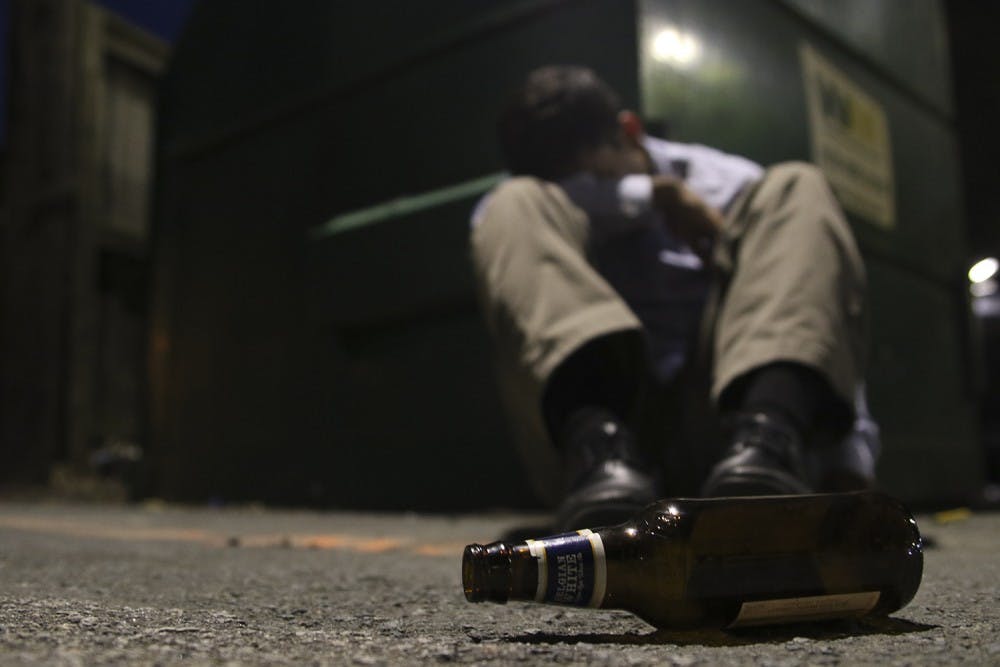“We recognize that the old policy, which hadn’t been updated since probably the mid-to-late 90s in major substantive ways, was really rooted in a classic enforcement approach,” Sauls said.
Sauls said when designing the policy, the working group did not want to focus on enforcement and discipline, but instead on encouraging students and faculty to come forward about needing help.
“(The new policy) is a lot more direct. Hopefully it is a lot more accessible ... We’re not going to policy our way out of an alcohol problem,” Sauls said.
He said the group’s main focuses in crafting the policy were educating students about the dangers of high-risk drinking and preventing future incidents.
“It is an incredibly courageous thing to do,” Sauls said. “To ask for help.”
Sauls said the alcohol policy also lays out treatment options for students, including therapy, leave from school, strategies to overcome addiction and alternate housing to support sobriety. Funding for programs can come from insurance, scholarships and gift funds.
The policy also established the Campus Alcohol Task Force. Dean Blackburn, associate dean of students and director of Student Wellness, said the task force plans to measure the impact and effectiveness of the policy in an effort to reduce high-risk drinking habits. Blackburn said they will survey students anonymously to understand the alcohol and drug perception on campus.
“In an ideal scenario, we are going to prevent situations from occurring that will lead to a public safety ticket or RA incident report, those sort of things,” Blackburn said.
However, Sauls said he does not want students to have the impression that they can’t get in trouble, because they can still suffer consequences as serious as expulsion.
“At some point, part of this public health approach is recognizing that many of us, whether you drink or not drink, are being impacted by the choices that others are making,” Sauls said.
Sauls said collaborating with the town of Chapel Hill is also a part of the alcohol policy. Policymakers brought community members like Elinor Landess, the Chapel Hill Downtown Partnership’s campus and community coalition director, into the discussion.
“Along with the alcohol policy, there was a number of things that the coalition recommended be embedded in that policy,” Landess said. “Things about off-campus parties, things about streamlining existing policies related to drinking both on and off campus.”
To get the day's news and headlines in your inbox each morning, sign up for our email newsletters.
Landess said the Chapel Hill Police Department trains local businesses to distinguish fake IDs. Police officers are also invited to residence halls to speak with students about the dangers of high-risk drinking.
Taylor Bates, president of the Residence Hall Association, said it is important to educate students living in residence halls about the policy. He said RHA teaches residents how to identify signs of alcohol poisoning and how to get help if needed, and they work to educate staff in residence halls on the policy so they can incorporate it into their programs.
“We find that there’s a lot of commonly held misconceptions about the alcohol policy at this University, specifically pertaining to what is medical amnesty,” Bates said.
Bates said RHA also hosts alternative late night events to reduce drinking and create a substance-free community on campus, working in tandem with the new alcohol policy.
“Kind of an underrepresented group that does exist on our campus are students who already come into this university recovering from some sort of prior alcohol addiction and they find themselves ... once again subject to this environment where alcohol is easily accessible and peer pressure exists,” Bates said.
@jamielgwaltney
university@dailytarheel.com



